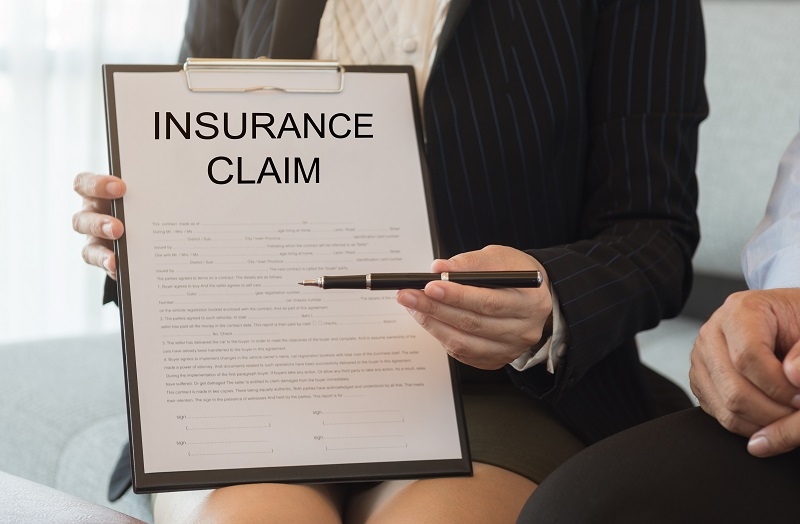
Dealing with an insurance claim can be overwhelming, especially since you're trying to get over property loss, a car collision, or unexpected medical bills. You file the claim, but the real challenge typically lies in negotiating with the claim adjuster. Understanding claim adjuster negotiation can greatly affect what you will ultimately receive. By using the right claim adjuster negotiation strategies, preparation, and mindset, you can manage the process and maximize your payout.
A claim adjuster works for the insurance company to evaluate your claim and determine the amount of compensation you will receive. Their job is to protect the interests of the insurer, not necessarily to ensure that you get the highest amount. This is why good claim adjuster negotiation skills are required.
Adjusters review documents, read your policy, and inspect damages where applicable. But be aware that their initial offer is rarely your best one. Being ready and assertive in the process will tip the scales to your advantage.
One of the best claim adjuster negotiation tips home professionals recommend is preparation. Documentation is everything. Start by collecting all documents, including your policy, photos of the accident or damage scene, medical or repair bills, third-party estimates, and written correspondence with your insurer.
For instance, if your house has been affected by fire or water damage, evidence with before-and-after photographs, quotes from the repairmen, and temporary accommodation expenses. At the time of negotiating the claim value, these documents are irrefutable evidence that strengthens your case.
When the adjuster calls you, be friendly but strategic.
Homeowners who are threatened with property loss usually take the first offer from the insurance company. That's a bad idea. One of the essential claim negotiator tips home experts always recommend is never taking the first offer. Most initial offers are low and made to close things up promptly.
Instead, analyze the estimate and compare it to your independent contractor's quote. Clearly and professionally point out discrepancies. In this manner, for example, if the adjuster left some repairs out or lowballed replacement costs, provide your contractor's evaluation to back up your demand.
Also, be sure to factor indirect losses into your calculations. If you are forced out of your home and must reside elsewhere, be sure to factor in those expenses. If you had valuable personal property that was destroyed, make an itemized list. This is paramount in presenting a sound argument during claim adjuster negotiation.
Auto accidents involve not only physical damage to the vehicle but also personal injury, time loss, and other ancillary expenses. A sound approach to negotiating claim adjuster auto accident claims starts with a complete chronology of events.

Medical-related claims are even more challenging. If you've suffered injuries from an accident or covered occurrence, medical expenses add up quickly. For successful claim adjuster negotiation medical expenses, keep it detailed. Note down emergency room visits, physician visits, physical therapy, lab tests, prescriptions, and future expected treatments.
Insurers would contest medical bills as much as possible, especially if they can argue that the treatment was unnecessary. When that occurs, request a statement from your doctor explaining why the treatment was necessary. This helps you properly resist in your claim negotiation.
If you've already paid out-of-pocket out of your health coverage, collaborate with your health, property, or auto insurer to prevent denied or incorrect payment. Medical complexity is the source of stress for claim adjuster negotiation medical bills, but being prepared gives you an advantage.
Negotiation is leverage. Below are successful claim adjuster negotiating tactics that can be used in home, auto, and health-related claims:
During the adjustment negotiation process, professionalism is critical. Despite being frustrated or drained, use a respectful tone. Be concise, clear, and assertive in your interaction. If you've prepared, let the facts speak for you.
One of the most prevailing explanations as to why people do not get what they deserve is that they think the insurance company's offer is final. The truth is that there is nothing non-negotiable. If it is property damage, a medical claim, or a car accident case, your documents and perseverance can accomplish more than you imagine.
All insurance policies are agreements. You do have the right to negotiate, ask for documentation, dispute estimates, and ask for second opinions. An adjuster is not going to tell you otherwise. Understanding your rights is one of the most overlooked claim adjuster negotiating tips worldwide.
If you must, submit a complaint in writing to your state's insurance commissioner. This is especially helpful if you are being stonewalled or dealt with unfairly by claim adjuster negotiation.
The ultimate goal of claim adjuster negotiation is to receive fair compensation. This is not padding the bill or dishonesty—it's being aware of your loss in its entirety and engaging in advocating what is rightfully yours. The best way to increase your level of claims is by being thorough, strategic, and persistent.
Whether you're repairing your home, recovering from an auto accident, or coping with a pile of medical bills, effective negotiation can help you save thousands. Applying the appropriate claim adjuster negotiation strategies, supported by facts and persistence, shifts the power equation in your favor.
Most individuals never acquire the skills of negotiating with an adjuster for a claim—until they absolutely need to. When it does, your capacity to remain calm, research your case, and make rational demands supported by facts will make or break your experience.
Use these claim adjuster negotiation home tips, claim adjuster negotiation auto accident strategies, and claim adjuster negotiation medical bill methods to position yourself for the best possible outcome. Insurance companies are counting on you not knowing how this process works. Show them otherwise—with confidence and facts on your side.
This content was created by AI